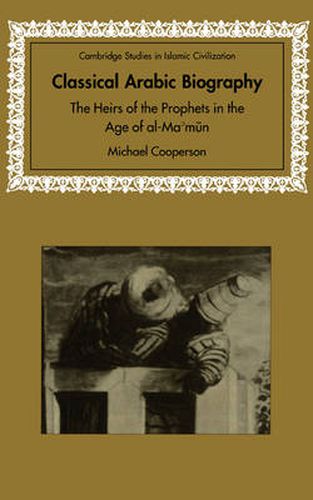Readings Newsletter
Become a Readings Member to make your shopping experience even easier.
Sign in or sign up for free!
You’re not far away from qualifying for FREE standard shipping within Australia
You’ve qualified for FREE standard shipping within Australia
The cart is loading…






Pre-modern Arabic biography has served as a major source for the history of Islamic civilization. In the first book-length study to explore the origins and development of classical Arabic biography, Michael Cooperson demonstrates how Muslim scholars used the notions of heirship and transmission to document the activities of political, scholarly and religious communities. The author also explains how medieval Arab scholars used biography to tell the life-stories of important historical figures by examining the careers of the Abbasid Caliph al- Ma'mun, the Shiite Imam Ali al-Rida, the Sunni scholar Ahmad Ibn Hanbal and the ascetic Bishr al-Hafi, each of whom represented a tradition of political and spiritual heirship to the Prophet. Drawing on anthropology and comparative religion, as well as history and literary criticism, the book considers how each figure responded to the presence of the others and how these responses were preserved by posterity.
$9.00 standard shipping within Australia
FREE standard shipping within Australia for orders over $100.00
Express & International shipping calculated at checkout
Pre-modern Arabic biography has served as a major source for the history of Islamic civilization. In the first book-length study to explore the origins and development of classical Arabic biography, Michael Cooperson demonstrates how Muslim scholars used the notions of heirship and transmission to document the activities of political, scholarly and religious communities. The author also explains how medieval Arab scholars used biography to tell the life-stories of important historical figures by examining the careers of the Abbasid Caliph al- Ma'mun, the Shiite Imam Ali al-Rida, the Sunni scholar Ahmad Ibn Hanbal and the ascetic Bishr al-Hafi, each of whom represented a tradition of political and spiritual heirship to the Prophet. Drawing on anthropology and comparative religion, as well as history and literary criticism, the book considers how each figure responded to the presence of the others and how these responses were preserved by posterity.